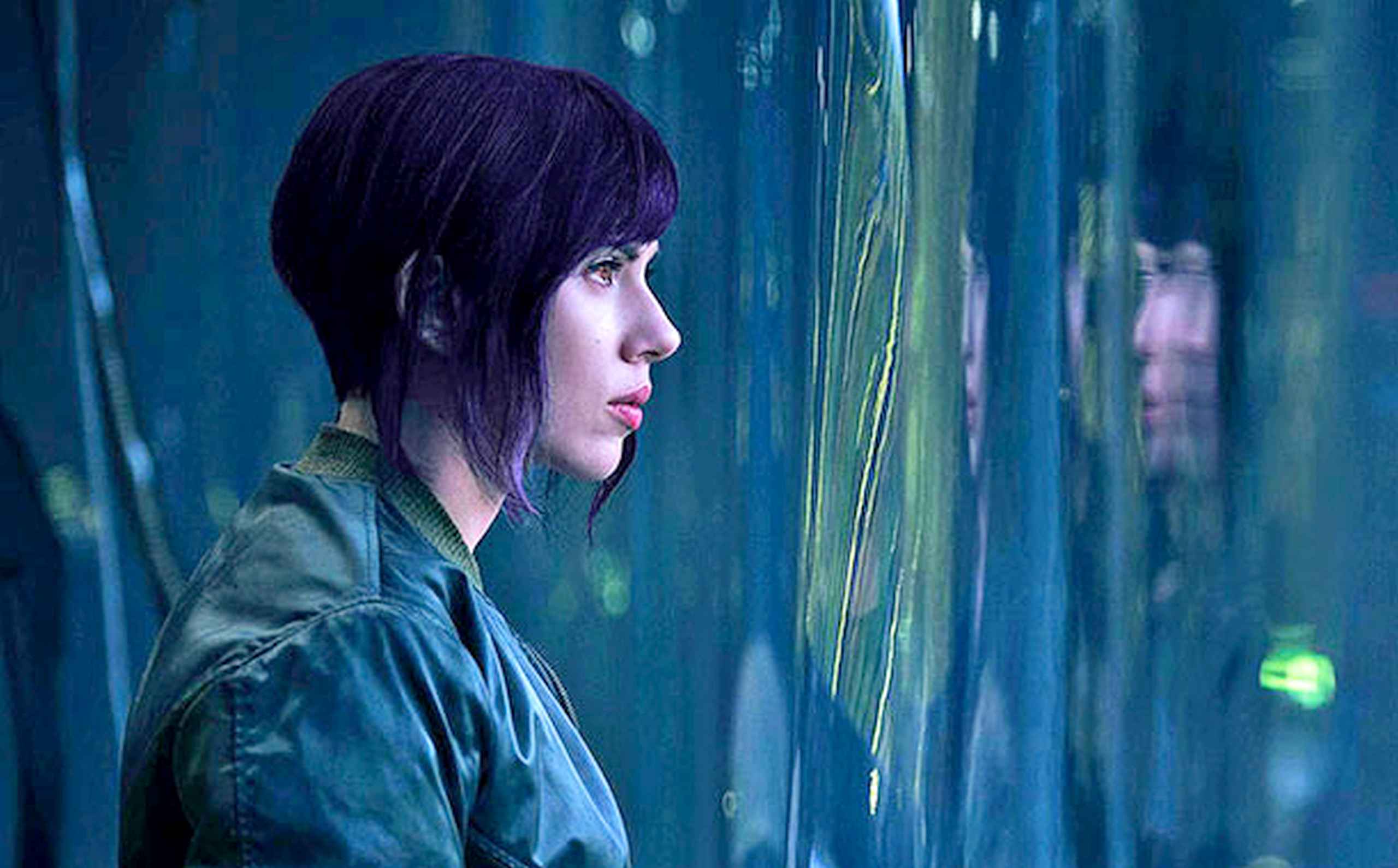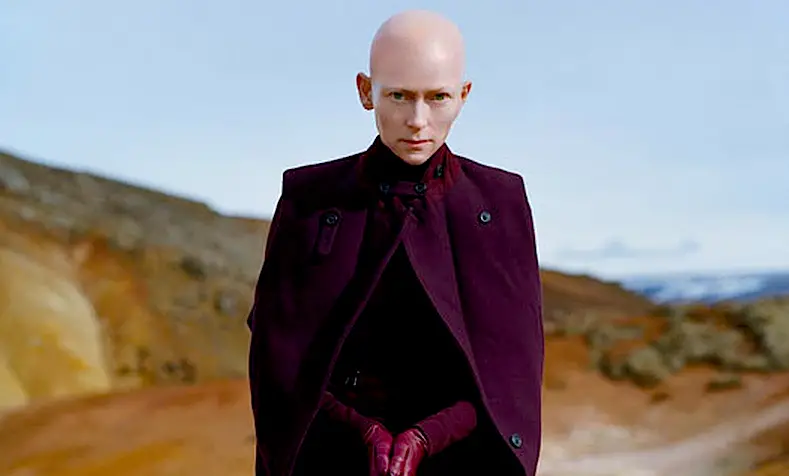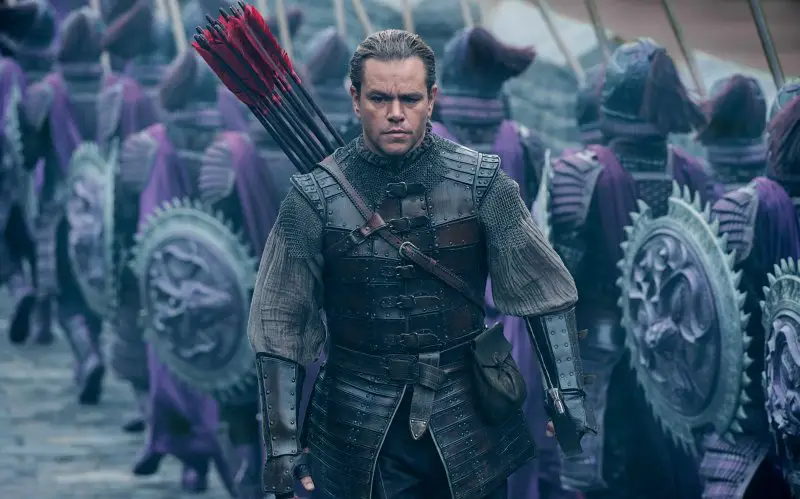Whitewashing Asian Media
Depicting Asian culture in media was step one. Step two is getting the right people to do it.
By Tylah Silva, Emerson College
“Doctor Strange,” “Iron Fist,” and “The Great Wall”—what do they all have in common besides their abysmal, low-grossing figures?
Each of the films is whitewashed and neglects Asian actors.
Whitewashing is exactly what it sounds like; it occurs when someone takes a piece of media that is central to a certain group of people of color and turns it white—not the color, but the culture and the race. Color-blind people argue that there’s nothing wrong with it, but Asian actresses Arden Cho and Constance Wu will explain that whitewashing robs capable Asian actors from working.
And, with white actresses like Scarlett Johansson in “Ghost in the Shell” and Tilda Swinton in “Doctor Strange” taking roles away from Asian actors, it begs the question: “Why do white people want to be Asian so badly?”

Of course, no one blames white people for wanting to emulate Asian people. “Fresh Off the Boat,” starring a Chinese cast based off the life of young Eddie Huang, has been killing it for the past two years. Ex-“The Walking Dead” star and Korean actor Steven Yeun also shows a promising future after his (spoiler alert) shocking death in the 2016 season premier. Additionally, let’s not forget Dev Patel’s Oscar nomination in “Lion” for best supporting actor, showing that his stardom from “Slumdog Millionaire” was not a fluke. And—oh, yeah—there’s also all of Bollywood that continually influences Western culture.
With the few opportunities they’ve been given, Asian actors have shown that not only are they incredibly talented and deserving of their roles, but that they also make money. So, why isn’t Hollywood investing in Asian actors?
Everyone is screaming “racism!” these days, and they’re not wrong; seeing Swinton as the Ancient One in “Doctor Strange” brings to mind Mickey Rooney as Mr. Yunioshi in “Breakfast at Tiffany’s” (seriously, is there an edited version of the movie without Mr. Yunioshi, because it was that unnecessary).
While the Ancient One’s portrayal wasn’t as extreme as wearing buckteeth and pulling her eyelids back, it’s still a form of yellow face. Swinton may say her portrayal isn’t supposed to be an Asian man, but given that she’s wearing a bastardization of Chinese traditional garb and her depiction is reminiscent of the weak, feminine Asian male stereotype, she might as well be wearing yellow face.
Then again, if it’s not yellow face, it’s just complete erasure. Which is just as bad.
The most notorious whitewashers are probably horror film creators. Apart from the general anime shonen stories, the horror genre in Japan makes big waves in the U.S. “The Ring” and “The Grudge” both originated as Japanese films, and were later adapted for U.S. cinema, which isn’t so bad. Not everyone can read subtitles or learn Japanese on the fly, so English speakers can enjoy Asian stories as well when they’re modified for such an audience.

However, when the films were adapted, they were done so with all-white casts, as if Japanese English-speakers don’t exist. Japanese stories with Japanese character made by Japanese writers are converted to please white audiences with none of the Japanese-ness.
But, let’s assume that the crux of “The Ring” doesn’t hinge on Japanese culture, but c’mon—“Ghost in the Shell”? For anyone who’s seen the anime or read the manga, they know that the fact that the story takes place in Japan with Japanese characters is essential to the plot. Even the live-action movie shows its Japanese influence, with robotic Geishas and holographic koi swimming through the city.
Sharalyn Orbaugh, professor of Asian Studies at the University of British Columbia, even observed how the film’s depiction of sex, gender and femininity is a commentary on gender politics in Japan. Therefore, the main character, Motoko Kusanagi (who isn’t shy about talking about her menstruation and reproductive organs or lack thereof) is an important figure specifically for Japanese women. Not only that, but Johanssen is going to look a little ridiculous as woman who is obviously (and blatantly) white, yet says her name is Motoko.
One would think that these filmmakers would learn that whitewashed films notoriously bomb at the box office. “Pan” was supposed to be a successful live adaptation of “Peter Pan,” but bombed when viewers learned that Tiger Lily, a Native American character, would be played by a white girl. The same happened with “Aloha” when Emma Stone played a multi-racial Chinese and Hawaiian American.
Recent endeavors like “The Great Wall” and Netflix original “Iron Fist” haven’t been doing so well either, even though neither of them are necessarily whitewashed. However, “The Great Wall” promised another whitewashed savior movie when previews showed Matt Damon saving China from a monstrous invasion. As it turns out, the film starred Chinese actress Jing Tian as Commander Lin Mae saving the day, which people would have paid to see if they had known that was what the film was actually about. Good going, advertisers.

“Iron Fist” is unique because the original comics already had the main character as a white man. However, fans were begging Marvel to cast an Asian man for lead role, so that the trope of white man learning martial arts and beating up evil Asian ninjas could die. Netflix original “Daredevil” also carries on the same racist trope, and by the start of the second season, dissertations on why the series is racist started popping up all over the internet. That’s why when Finn Jones was cast as lead character Danny Rand, comic fans were set on boycotting the show.
And of course, viewers should be boycotting whitewashed media, but what about the actors complacent in the act? It’s a little more complicated. Arguments are that if one white actor doesn’t take the role, another will, such as when “The Hunger Games” auditioned only white women to play the racially mixed Katniss Everdeen. And it’s hard to blame low-level actors for taking these roles when they need to get their careers off the ground.
However, Johannsen and Swinton aren’t just starting out; they’re seasoned actresses who can get whatever roles they want. By the time Johannsen took the role for “Ghost in the Shell” she also had a streak of taking anti-Asian roles, such as in “Lucy” where she shoots an Asian man in the stomach for not speaking English. With “Ghost in the Shell” Johannsen hammered the nail in her anti-Asian racism.
However, “Ghost in the Shell,” “Iron Fist” and “Daredevil” are only a few names on a long list of media that takes Asian culture for the servitude of a white audience. But creators can’t pick and choose what parts of Asian culture they want to use for their projects without watering down the quality. Because if anyone had the choice of getting packaged sushi from a Texan supermarket or getting fresh cut sushi from a Chinatown restaurant, they’d probably pick the latter.
The whitewashing of Asian actors in particular, as opposed to black actors (not that this also isn’t significant), is important to notice in order to combat orientalism in every form. In other words, audiences need to recognize and correct white fantasies of Asian culture. Because there are so many great stories coming from Asia, and they need to be told correctly lest we risk alienating and disrespecting the people who they are created for.


















[…] other articles, including “The WWE and the Women’s Revolution” and “Why Do White Actors Want to Be Asian So Badly?“. Silva’s article “What’s the Difference Between Slang and AAVE?” was […]
[…] cast includes Asian actors and actresses with varying levels of experience and works to their name. To begin, […]